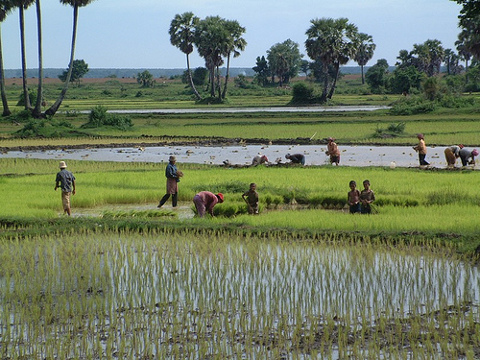June 28th, 2012,
softpedia.com
By Laura Sinpetru
Just recently, high officials in Cambodia
made public their decision to once again lease out four areas supposedly
belonging to the country's protected lands, in an attempt to boost
national economy.
Although environmentalists and members of the local communities keep protesting against such decisions, members of the government argue that, but for widening Cambodia's agricultural regions, the nation is to fail in developing.
Although environmentalists and members of the local communities keep protesting against such decisions, members of the government argue that, but for widening Cambodia's agricultural regions, the nation is to fail in developing.
Thus, they claim that, by pushing for a highly
productive agricultural industry, the country will eventually start
making enough money to improve on its other trades as well.
To put it bluntly: Cambodia's agriculture is expected to jump-start the country's overall progress.
To put it bluntly: Cambodia's agriculture is expected to jump-start the country's overall progress.
Mongabay reports that the latest arguably-legal land concessions, for which the Cambodian government needs to be made responsible, are as follows: 20,200 acres in Kulen Promtep Wildlife Sanctuary, about 24,000 acres in Kirirom National Park, roughly 22,400 acres in Phnom Prich Wildlife Sanctuary, and 22,200 acres in Lumphat Wildlife Sanctuary.
What is interesting about these land concessions is that, although they are supposedly directed at the well-being of Cambodia's citizens, the latter don't really seem to fully approve of them.
Most often, complaints are raised about how leasing out wide areas of land leads to local communities having to move out of their homes if they happened to have settled close-by.
As well as this, it seems that indigenous people are sometimes left without the possibility to practice small-scale agriculture. This means that they have to go in search of a job, even if work in Cambodia is most likely insecure.
From where we stand, given the fact that land concessions in Cambodia have been proven time and time again to be responsible for conflicts between authorities and local communities, and for environmental degradation, it would perhaps be best for the government to try and find other ways of boosting the national economy.


No comments:
Post a Comment